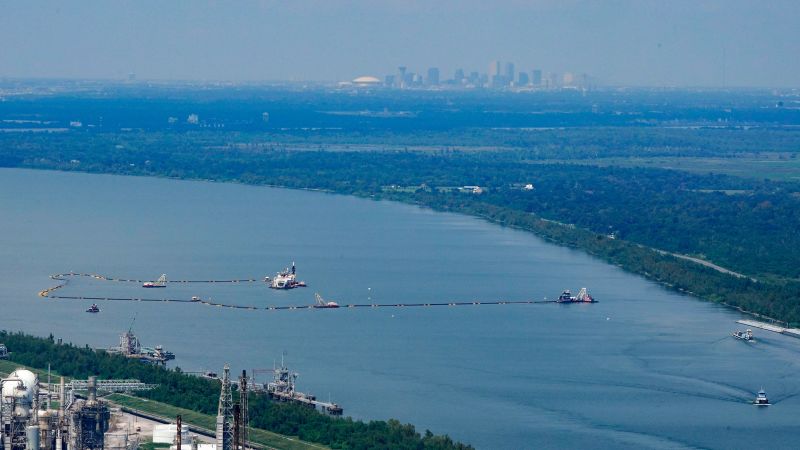Water barges and salt-filtering reverse osmosis units will not be enough to prevent saltwater from contaminating New Orleans’ largest water facility, officials said at city council meeting on Wednesday. Instead, a pipeline will be needed to deliver freshwater from upstream — not just for New Orleans, but likely for neighboring Jefferson Parish, too.
It would be a significant and pricey escalation in the region’s response to the saltwater wedge inching its way up the Mississippi River and contaminating drinking water for thousands of people.
“Barring the rain that’s probably not going to happen … the tactic or strategy we’re taking right now is drawing water further upriver,” Collin Arnold, director of homeland security and emergency preparedness for the city of New Orleans, told New Orleans City Council members.



The extended periods of drought could very well cause the river to dry up. We just don’t know. i do know that in my part of the southeast, we have definitely seen a decrease in rainfall. Will the trend continue? Who knows. Climate change is going to redefine our regions.
I’m sorry, but you’re the one making the fantastical claim here. The Mississippi is fed from waters that cover a third of the United States. Yes, climate change will change our ecosystems, but there’s no evidence that the Mississippi will dry up anytime soon or at all.
You are confusing weather and climate bruh.
Which is fine, because one is the sum of the other, but they do have very different properties.
Expect Mississippi River dry ups to happen more often. But also for flooding to happen more often. This dry up isn’t an anomaly, but dry ups happening 3x more often is.
Yes, all of the Mississippi watershed may just dry up. We just don’t know!